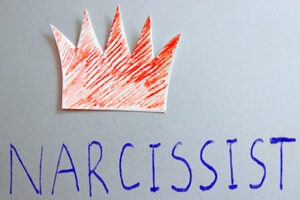Signs You May Be Suffering from Narcissistic Abuse
6th March 2021 The three nags of shame, blame, and guilt, despite their negative connotations, do have a somewhat constructive purpose. They’re felt responses that help us perceive our role within a given situation; or modes of discernment if you like, letting us know when we’re not acting in our highest good. They serve as reminders to pull our behaviour back in line, either in the present moment or in the future, by providing a point of reference.
The three nags of shame, blame, and guilt, despite their negative connotations, do have a somewhat constructive purpose. They’re felt responses that help us perceive our role within a given situation; or modes of discernment if you like, letting us know when we’re not acting in our highest good. They serve as reminders to pull our behaviour back in line, either in the present moment or in the future, by providing a point of reference.
The problem arises when these responses are turned against us as a way to demean and belittle. They become weapons, capable of inflicting deep wounds. This can occur without thinking, as either a reaction when emotionally triggered, or as subtle acts manipulation. In fact, it is these three facets that are responsible for many of the dysfunctions experienced in close relationships, from communication breakdowns to boundary violations and jealousy.
Aren’t They All the Same?
It’s something of a misnomer that shame, blame and guilt are one and the same, as they are all so closely related to one another. But while there is a certain amount of crossover between them, each has its own particular characteristics.
Shame
Shame can be experienced in several ways, either independently or as a follow-on to blame. If your accuser is particularly vindictive, they might choose to drive home their superiority by drawing attention to your inadequacy. This occurs through them not only pointing out the perceived ‘wrong,’ but also questioning how on Earth you could have made such a mess. The inference being that anyone would surely have done better in your position.
Shame is an emotion that is very much of the self. It signifies how comfortable we feel, both in our character and abilities. And while it exerts on its own influence, there is the connection to the act of doing and blame, as we’ve touched on. Shame is rooted in the failure to live up to expectations real or imaginary; self-imposed or those put upon us by a third party
The shaming of others is often used by malignant narcissists as a way of running away from their own shortcomings. They will project their insecurities to boost their self-esteem, shattering the confidence of their targets in the process. This shaming can also be used as a means of control. Again, a tactic that might be employed by someone with narcissistic tendencies to prevent their partner from becoming too independent.
Blame
Blame is an act that serves no useful function in relationships. It is accusatory, inflammatory and invariably leads to friction. This isn’t to say there should never be a sense of accountability; that would be wholly unrealistic. We all get things wrong from time to time. Mistakes are as commonplace as anything you could mention. But the issue is in how we bring our grievances up, and more so, whether they need to be brought up at all.
Take something trivial like a broken plate, for example. There is no great personal loss suffered, and neither have your boundaries been violated. So ask yourself, is there any need to reinforce this fact by stating the obvious? It is these instances that contribute to feelings of resentment within couples, and the sense of needing to settle scores further down the line.
However, the greatest cause for conflict is when our values have been compromised; when we’re accused of infringing on some emotion or personal boundary. The accused and the accuser each trade blows with blame and counter-blame, never resolving their disputes, but merely highlighting more of each other’s flaws.
Guilt
Within the context of dysfunction, guilt could be thought of as the closest relative to shame. But whereas shame is related the way we view ourselves, guilt is linked to the act of having done something wrong. A useful way to differentiate the two is to think of shame as something that is hidden. However, with guilt, it’s a feeling that bears a weight that demands to be relieved, either by confessing or atoning for a misdeed
Guilt can also be projected in several different ways. The first is within the blame, shame and guilt scenario, coming after the initial accusation and then ridicule. This comes into play when your actions may have cost your accuser something important, either real or imagined and is quite often exaggerated. When used as a tactic by itself, like shame, it is usually as a means of control, and contributes heavily to the dynamic of ownership through the overstepping of boundaries.
***If any of the scenarios above resonate with you, and mirror some of the experiences in your own life, one of specialists would be happy to provide an initial consultation to help determine the best way to assist you.
You may also want to read about Narcissistic personality disorder, where the weaponisation of shame, blame, and guilt is common place.













